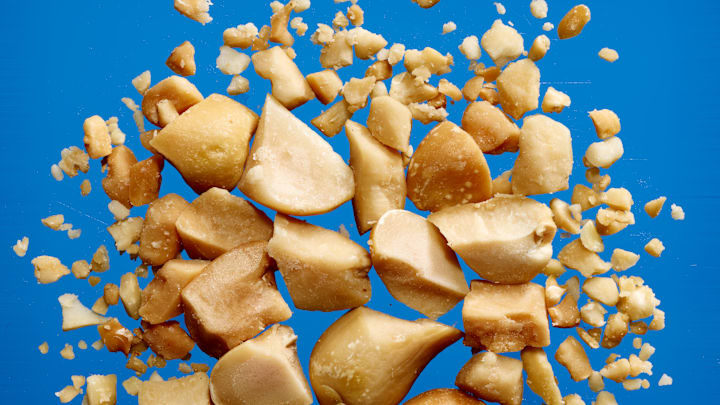For travelers with peanut allergies, boarding an airplane has long thought to be a somewhat risky endeavor. Those little packets of peanuts handed out to passengers could, in theory, create an allergen-rich cabin environment thanks to crumbs left on seats or particles circulating through the ventilation systems.
The issue causes an understandable amount of concern: Having a serious allergic reaction in the air without medical help at hand could be fatal. But new research indicates that airplane cabins and their circulating air don’t appear to pose any heightened danger for people with food allergies. They may, in fact, be slightly safer than previously believed.
A paper published in the journal Archives of Disease in Childhood took a closer look at the popular belief that peanut allergens can be redistributed by the circulated-air system of planes. Data was sourced from the past 43 years of aviation incident reports compiled by the UK’s Civil Aviation Authority (CAA) to look for any sign of air contamination from food allergens. No such events were logged.
Furthermore, say the study authors, there doesn’t appear to be any mechanism for peanut allergens to become airborne. When peanuts are shelled, small amounts of the legume can briefly suspend in the air, but they fall relatively quickly to the ground or tray table.
This runs somewhat counter to conventional thinking: If peanut “dust” is created, wouldn’t it be picked up by the plane’s circulation system? Could someone eating peanuts in Row 15 somehow contaminate the air of someone sitting in Row 4?
Unlikely, according to the paper. Planes circulate cabin air every three to four minutes, or twice as often as commercial buildings like schools and hospitals. The recycled air is filtered, meaning particulates (dust, allergens, germs) aren’t simply dumped back into the cabin. And half of the air is brought in from outside the plane. Consequently, peanut allergens have very little chance of either going airborne or being released into the cabin at large.
So are people with allergies cleared for take-off? Not quite. While many airlines have stopped serving peanuts out of concern for those with nut allergies, there’s no industry-wide prohibition, and even in-flight meals might conceivably contain allergens. Plus, travelers are typically free to bring their own snacks. That means peanut and other food residue can still be present on surfaces like tray tables, screens, or armrests. Those with serious peanut allergies should wipe down—or request a flight attendant to wipe down—their seating area to avoid any potential contact. (Don’t assume the airline has done this between flights: Most don’t.)
If you want to be extra cautious, you can also decline offers of blankets or pillows, which may not have been washed and which may contain trace amounts of someone’s snack.
Passengers at risk of anaphylaxis should also carry EpiPens to treat serious reactions, as there’s no guarantee an airplane’s first aid kit will have one. Obviously, it should be brought on as part of your carry-on luggage. Make sure that prescription information is clearly visible and that you make security agents aware of the medication during screening.
If you’re grappling with a serious allergy, it’s also a good idea to check your airline’s website for their allergen policies or see if you can notify them of your allergy. In that instance, they may be able to situate you in a “buffer” area of the cabin that’s free of peanut-consuming passengers or make you aware of any meal or snack precautions. Some, like Delta, offer early boarding so you can clean your seat.
Flying still requires a mindful approach, but passengers with nut allergies should concern themselves with surfaces and not the cabin air itself. Passengers are airborne; the peanuts are not.
Read More About Airline Travel:
Have you got a Big Question you’d like us to answer? If so, let us know by emailing us atbigquestions@mentalfloss.com.
